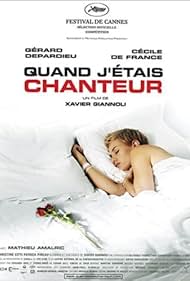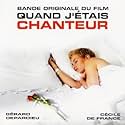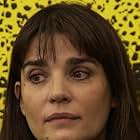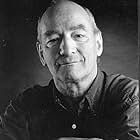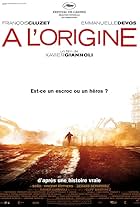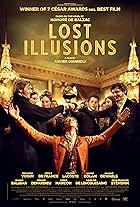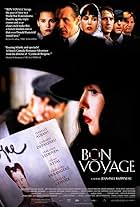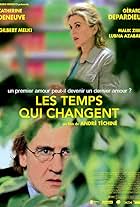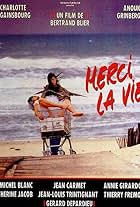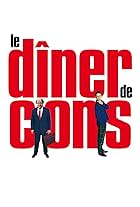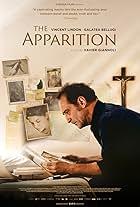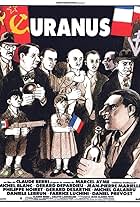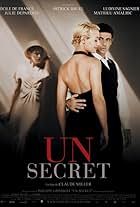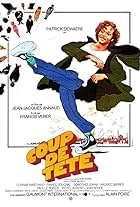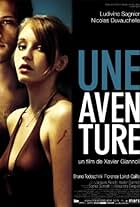Quand j'étais chanteur
- 2006
- 1h 52m
Alain Moreau sings for one of the few remaining dance-bands in Clermont-Ferrand. Though something of an idol amongst his female audience he has a melancholic awareness of the slow disappeara... Read allAlain Moreau sings for one of the few remaining dance-bands in Clermont-Ferrand. Though something of an idol amongst his female audience he has a melancholic awareness of the slow disappearance of that audience and of his advancing years. He is completely knocked off balance when... Read allAlain Moreau sings for one of the few remaining dance-bands in Clermont-Ferrand. Though something of an idol amongst his female audience he has a melancholic awareness of the slow disappearance of that audience and of his advancing years. He is completely knocked off balance when he meets strikingly attractive and much younger businesswoman Marion. She seems distant a... Read all
- Awards
- 3 wins & 9 nominations
- Jenifer
- (as Camille de Pazzis)
- Director
- Writer
- All cast & crew
- Production, box office & more at IMDbPro
Storyline
Did you know
- ConnectionsFeatures Stromboli (Terra di Dio) (1950)
- SoundtracksPauvres Diables
(Pobre Diablo)
Written by Julio Iglesias, Ramón Arcusa and Manuel de la Calva
French lyrics by Michel Jourdan
Performed by Gérard Depardieu
The cut and dry figure of Gérard Depardieu is that of whom embodies the lead, the titular singer named Alain Moreau; a man we first see occupying a small and dingy little dressing room the local establishment appear to additionally store the vacuum cleaners inside of. Outside in the main hall, his portrait on a poster paints a far more positive image of him in his looking happy and holding a rose in the process as the place fills up with elderly people ready for a night of entertainment and socialising. The item of the strained differences in the man's existence as to what the public see and what's honestly lurking underneath, here, being the two different things which are brought to our attention. His life sees him work through the night with a band; their coming to an end with the conclusion of another gig seeing Moreau leave the establishment upon payment in the morning, both bleary eyed and a little shell shocked at the bright early light to an accompaniment of gentle electronic music. Moreau appears lonely, he sleeps at a relatively large home by himself and lives a generally muted existence with what seems to be nothing bar a pet fawn of some kind, whom totters around the house his closest form of company.
The sense of life generally passing Moreau by is highlighted by way of a number of amusing quips to do with the distinction between young and old; the then and now; the modern and the classical. The item of 'older' people attending his shows is verbally illustrated by a character whom deems his audience members "too old for nightclubs" and so they attend Moreau's shows whereas Moreau's own views on the contemporary item of karaoke and the ability for any swinging-guy to have a bash at singing up on a stage, however badly, is dismissed. The greater extent of this particular statement enabling us to draw on comparisons to similar contemporary opinions extended to other art forms and mediums, namely television and cinema in the form of the rise of more online based opinions which hardened academics often state are trivialising forms of journalism if they aren't already destroying it.
Through an old friend named Bruno, played by the ever dependable Mathieu Amalric so-much-so that he just appears to blend into proceedings, who used to be a bit of a gambler and now owns an estate agency; Moreau meets Marion (De France), a divorced woman who's dishevelment and downbeat nature matches that of our lead's and whom works with Bruno at the company. The subject matter and material the film eventually comes to cover is handled in a methodical and mature manner by director, also the writer, Giannoli. Moreau's organising of house visits purely to see her and the manner in which he keeps coming back neither as lecherous nor as misjudged as it might have been following the early spending of a night together. Principally, the two of them are linked more intrinsically by way of the nature of their jobs; Moreau the singer on stage at a designated place so as to guide customers through their nights out involving drinking and socialism, as Moreau himself verbally identifies that "they come here to drink champagne, that's all". In regards to Marion's role, her turning up to another designated establishment so as to show potential customers around a home they might buy bring to attention the fact that both people are present in their jobs, but not crucial; they add a dimension to an experience but appear largely unnecessary to proceedings as the greater extent of the trip unfolds around them.
The character is explored in a fashion that sees come across as so much more than a mere photogenic supporting act, whom cannot get a man despite these qualities, and must act purely as the subject of another man's attraction. Their coming together is well observed and nicely unfolded; complications linked to Marion's own life situations involving grief additionally given ample attention. The film as a whole cracks along at a right old pace, its internal music propping everything up with a series of belting tracks which hop between fast and punchy numbers to slower, more resonating ballads nicely echoing the film's own ever-shifting atmosphere as the lead attempts to get to know his supporting female around the ever present Bruno. Giannoli's film is a mature mediation on middle age, a wonderfully involving tale of romantic affection and a well constructed study of two people at respective points in their lives.
- johnnyboyz
- Jan 3, 2011
- Permalink
Details
Box office
- Gross worldwide
- $10,205,575
- Runtime1 hour 52 minutes
- Color
- Aspect ratio
- 1.85 : 1
Contribute to this page

